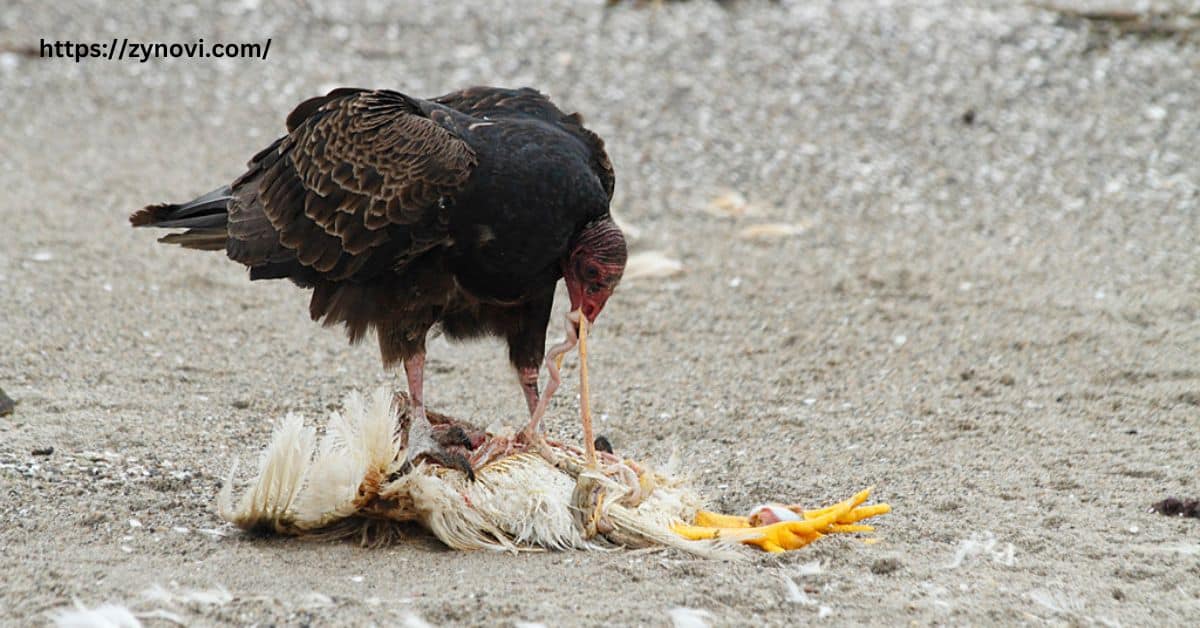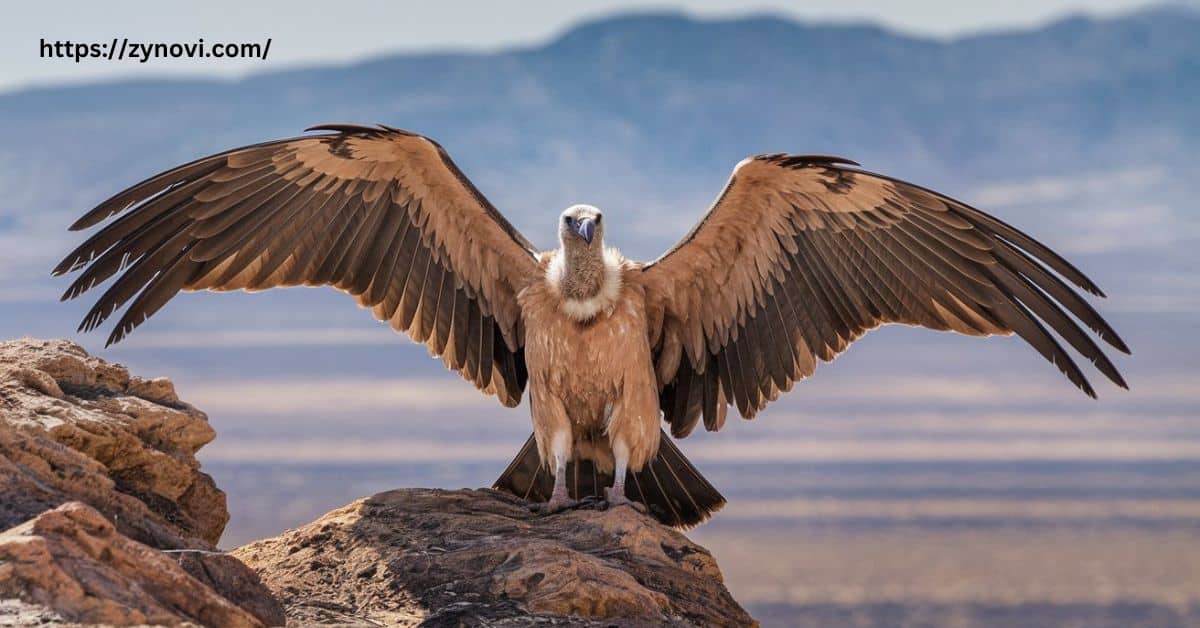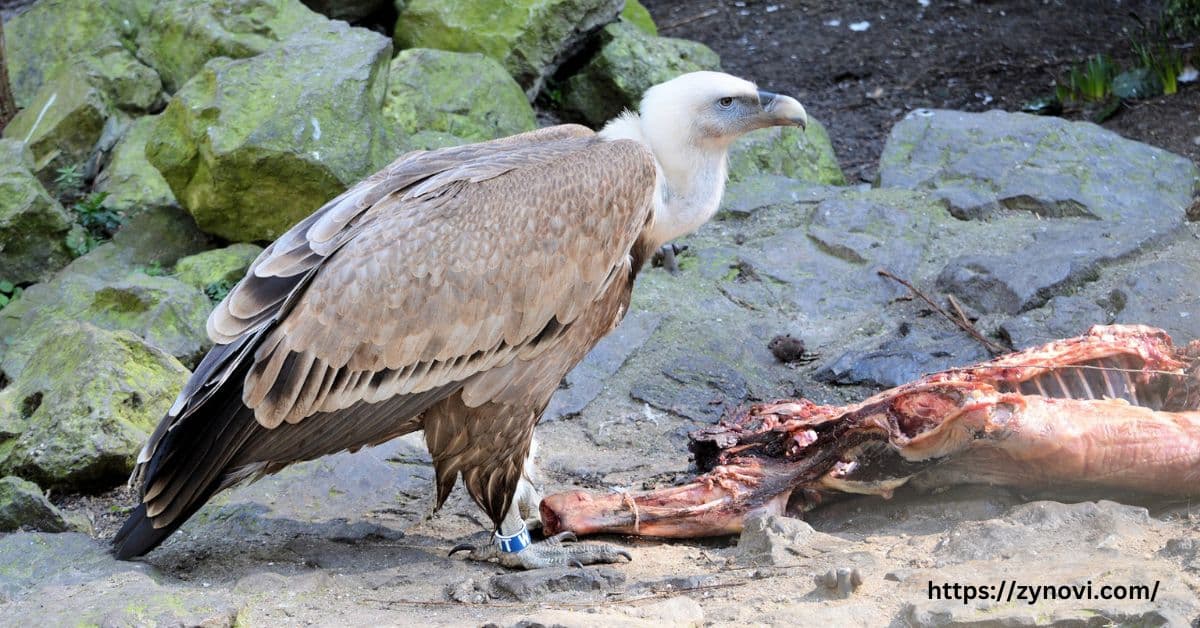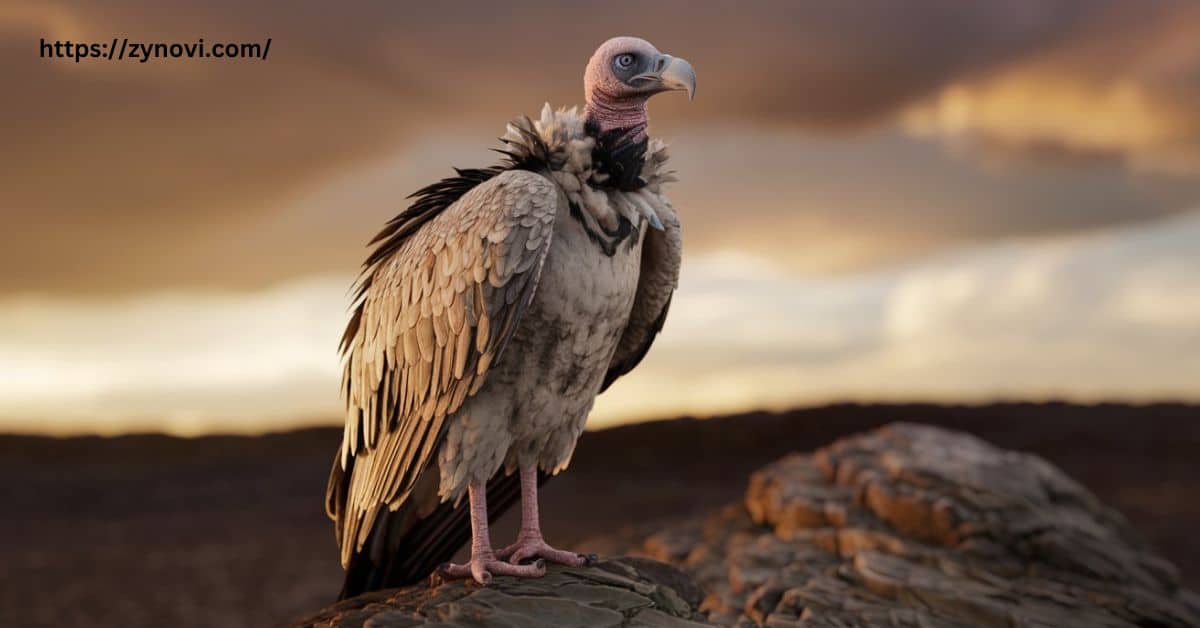Will vultures attack humans? Vultures won’t attack humans; they are scavengers focused on feeding from dead animals, not living creatures.
It’s a question that might have crossed your mind, especially after hearing sensational stories or seeing their intimidating presence in the skies. But before you let fear take flight, let’s clear up the mystery surrounding these fascinating creatures.
Vultures are often misunderstood. While they may seem a little eerie circling overhead, their behavior is far from dangerous to humans. In this article, we’ll find out why vultures don’t pose a threat, what they really do, and how they play a crucial role in our ecosystem.
Understanding Vultures: Nature’s Cleanup Crew
What Are Vultures?
Vultures are scavenger birds belonging to two distinct families: New World Vultures (family Cathartidae) and Old World Vultures (family Accipitridae). These birds are specialized for consuming carrion, the decaying flesh of dead animals playing a critical role in nutrient recycling and disease prevention.
Despite their grim reputation, vultures are essential to maintaining healthy ecosystems. They prevent the spread of diseases by rapidly consuming decaying matter that would otherwise become a breeding ground for pathogens.
Differences Between New World and Old World Vultures
New World Vultures
Native to North and South America, these vultures rely heavily on their sense of smell to locate food, an adaptation unique among most birds. Key species include:
- Turkey Vulture (Cathartes aura): Known for its excellent sense of smell and reddish head.
- Black Vulture (Coragyps atratus): A more aggressive scavenger that often follows Turkey Vultures to carrion.
Old World Vultures
Found in Africa, Asia, and Europe, Old World Vultures rely on keen eyesight rather than smell to locate food. Notable species include:
- Griffon Vulture (Gyps fulvus): Known for its soaring abilities using thermal currents.
- Egyptian Vulture (Neophron percnopterus): A small vulture with unique tool-using behavior, such as using rocks to break open eggs.
What Do Vultures Eat and Their Feeding Habits?

Scavenging and Locating Food
Vultures are equipped with specialized adaptations to detect and consume carrion:
| Vulture Type | Adaptation | Description |
|---|---|---|
| Turkey Vulture | Acute Sense of Smell | Detects gases like ethyl mercaptan released by decaying flesh, allowing them to locate carrion hidden under vegetation. |
| Old World Vultures | Exceptional Eyesight | Uses sharp vision to spot carcasses from miles away, relying on sight rather than smell to locate food. |
| Shared Adaptation | Thermal Soaring | Utilizes rising warm air currents to conserve energy while scanning large areas for food. |
These specialized traits make vultures highly efficient at finding carrion, ensuring rapid cleanup of decaying matter.
Feeding Mechanisms and Adaptations
Vultures possess remarkable adaptations that make them efficient scavengers. Their sharp, hooked beaks are designed to tear through tough animal hides and muscle with ease, allowing them to access carrion that other animals cannot.
Additionally, their powerful digestive acids are capable of neutralizing dangerous pathogens, including anthrax, botulism, and rabies, which protects both vultures and the ecosystems they clean.
A unique feature is their bald heads, a result of convergent evolution, which minimizes bacteria buildup and keeps them cleaner during feeding. These traits underscore their ecological importance.
Can Vultures Attack Humans?

Physical Attributes and Capabilities
Vultures possess distinctive physical traits that set them apart from predatory birds:
- Impressive Wingspans: Some species, like the Andean Condor, boast wingspans of up to 10 feet, aiding in long-distance soaring.
- Weak Talons: Unlike hawks or eagles, their talons are adapted for perching rather than gripping prey or attacking.
- Specialized Beaks: Designed for tearing carrion rather than hunting.
- Lightweight Build: Enables efficient flight and thermal soaring while conserving energy.
These adaptations support their role as scavengers rather than predators.
Behavioral Insights: Are They Aggressive?
Vultures are inherently non-aggressive birds that prefer to avoid confrontation with humans or other animals. Their behavior is often misunderstood, particularly their circling patterns, which indicate they are scouting for carrion rather than exhibiting predatory behavior.
While they may approach human activity, it is typically due to the presence of food sources like roadkill or improperly managed garbage. Such interactions are opportunistic, not aggressive, reinforcing their role as efficient scavengers in ecosystems.
Why Vultures Don’t Prey on Humans
Vultures are obligate scavengers, which means their diet exclusively revolves around carrion, not live prey. Unlike predatory birds, vultures lack the sharp talons and hunting instincts required to capture or kill.
Evolution has equipped them with specialized tools for scavenging, such as strong beaks to tear through carcasses and highly acidic stomachs to digest decayed meat safely.
Their evolutionary focus on scavenging over predation makes them unsuitable for hunting, ensuring humans remain outside their dietary scope.
Real-Life Interactions Between Vultures and Humans
Observed Behaviors Around Humans
- Vultures are commonly observed roosting near human settlements, especially in areas where food waste or roadkill is plentiful. Black Vultures, in particular, are known to congregate in urban environments, drawn by accessible food sources.
- While these birds typically avoid direct human interaction, their presence can sometimes lead to property damage, as their acidic droppings can corrode building surfaces or vehicles.
- This behavior highlights their adaptability to human-influenced environments while maintaining their role as scavengers.
Vultures and Human Remains
- In certain cultures, vultures are involved in the consumption of human remains, particularly in regions with traditions like the Tibetan sky burial.
- In this spiritual practice, human bodies are exposed to the elements, allowing vultures and other scavengers to feed on the remains.
- This practice is rooted in Buddhist beliefs, where the act of providing the deceased to vultures symbolizes the cycle of life and death, with vultures playing an integral role in nutrient recycling and the ecosystem.
Myths vs. Facts: Debunking Common Misconceptions
Myths About Vultures Attacking Humans
Myth: Vultures attack and carry off children or pets.
Fact: Vultures are physically incapable of carrying off large prey, including children or pets. Their weak talons and scavenger instincts make them more suited for feeding on dead animals, not live prey.
Scientific Clarifications:
- Circling vultures: The sight of vultures circling overhead does not signal danger. They are simply riding thermal currents, which help them conserve energy while searching for carrion.
- Disease prevention: Contrary to some beliefs, vultures do not spread diseases to humans. In fact, they help prevent the spread of disease by consuming decaying matter that could otherwise harbor harmful pathogens.
Are Vultures Dangerous to Humans? Evaluating the Risks

Situations Where Vultures Could Be Hazardous
Though vultures are not a direct threat to humans, there are a few situations where they can pose risks. Their acidic droppings can damage structures, vehicles, and other surfaces, particularly in areas where vultures frequently roost.
Moreover, large groups of vultures gathering near livestock can create anxiety among farmers, as their presence may be interpreted as a sign of sick or dead animals. This can disturb both farmers and their animals, even though vultures aren’t a threat to them.
Natural Defense Mechanisms
Vultures have developed vomiting as a defense mechanism when threatened. They eject foul-smelling, partially digested food, which can effectively deter predators by creating an unpleasant scent.
This behavior is not harmful to humans, but it can be startling if encountered. The act of vomiting serves as a protective strategy, allowing vultures to escape danger by distracting or repelling potential threats with the overwhelming odor.
How Vultures Help Humans and the Environment
Ecological Importance of Vultures
Ecological Importance of Vultures
- Cleaning Ecosystems: Vultures play a crucial role in cleansing ecosystems by removing carrion. Their consumption of decaying animals helps prevent the spread of diseases like anthrax, botulism, and rabies.
- Supporting Biodiversity: By scavenging dead animals, vultures help to maintain ecological balance. They ensure that decomposers like bacteria and insects can efficiently break down organic matter, which in turn contributes to the nutrient cycle.
Contribution to Public Health
Vultures reduce disease outbreaks by consuming carcasses that would otherwise harbor harmful bacteria. Their decline in some regions has led to an increase in feral dogs and rats, resulting in higher rabies transmission rates.
| Ecological Benefits of Vultures | Description |
|---|---|
| Disease Prevention | Reduces the spread of anthrax, rabies, and botulism. |
| Carrion Disposal | Cleans up dead animals quickly and efficiently. |
| Nutrient Recycling | Returns essential nutrients to the soil. |
FAQs
Would a vulture attack you?
Vultures do not attack humans; they are scavengers that feed on dead animals and avoid confrontation.
Can a vulture carry a human?
No, vultures lack the physical strength and talons to carry a human or any large prey.
What part of the body do vultures eat first?
Vultures typically start with the softest parts of the body, such as the eyes, organs, and intestines.
How to protect yourself from vultures?
Avoid disturbing vultures, and if they are near, stay calm and move away slowly to avoid threatening them.
Conclusion: Will Vultures Attack Humans?
Although vultures may appear intimidating with their large wingspans and circling behavior, they are completely harmless to humans. These magnificent scavengers are essential for maintaining a healthy environment. By feeding on carrion, they help prevent the spread of disease, clean up ecosystems, and promote biodiversity.
Their role as nature’s recyclers ensures that decaying organic matter doesn’t accumulate and disrupt the balance of the ecosystem. Understanding vulture behavior and their ecological significance can alleviate unnecessary fears and encourage a peaceful coexistence, highlighting their importance rather than focusing on misconceptions.










